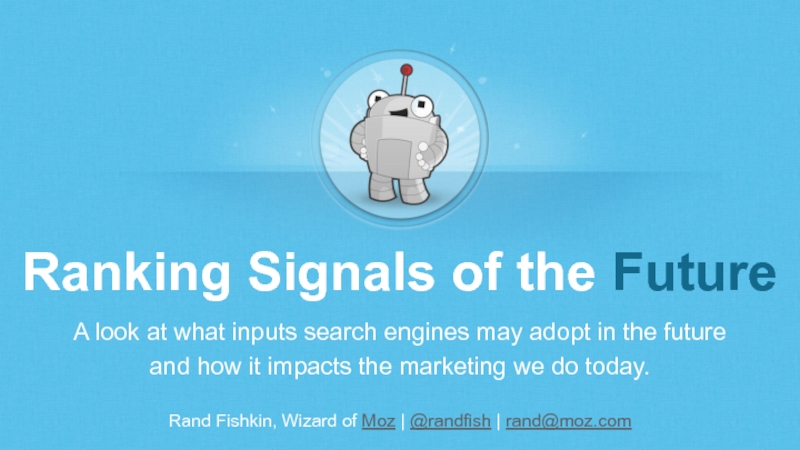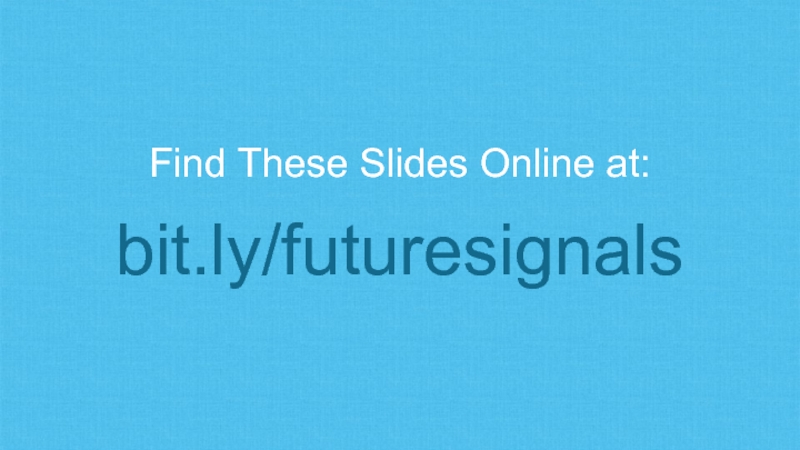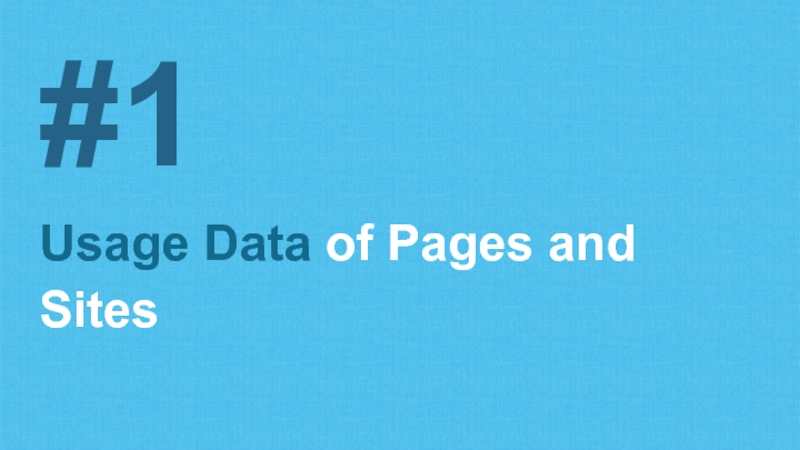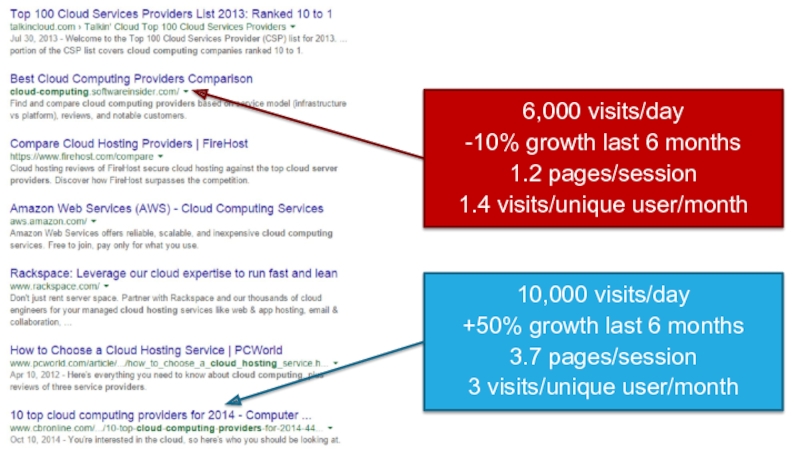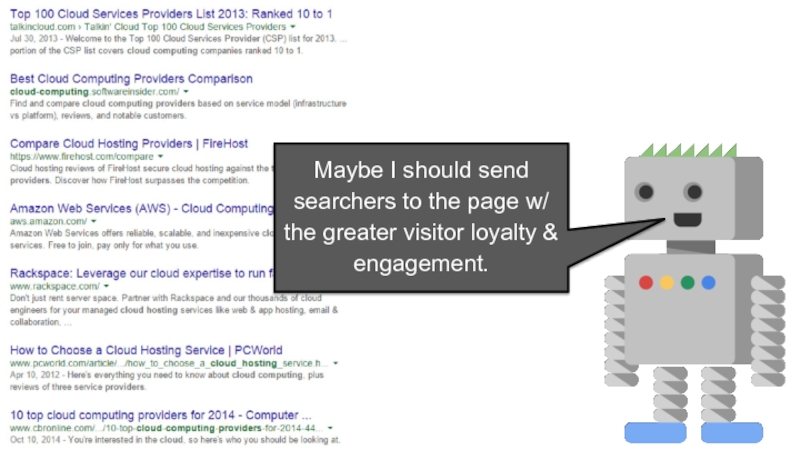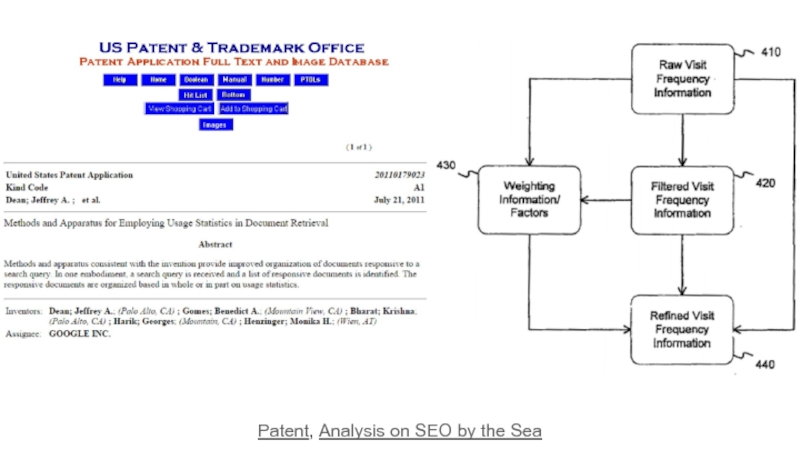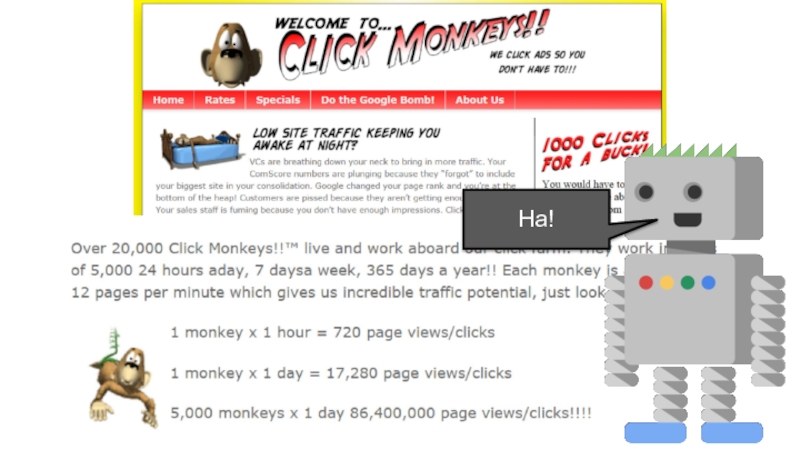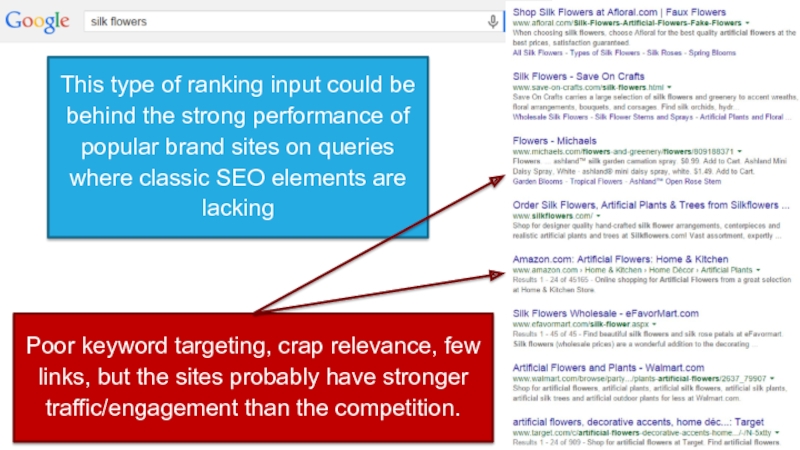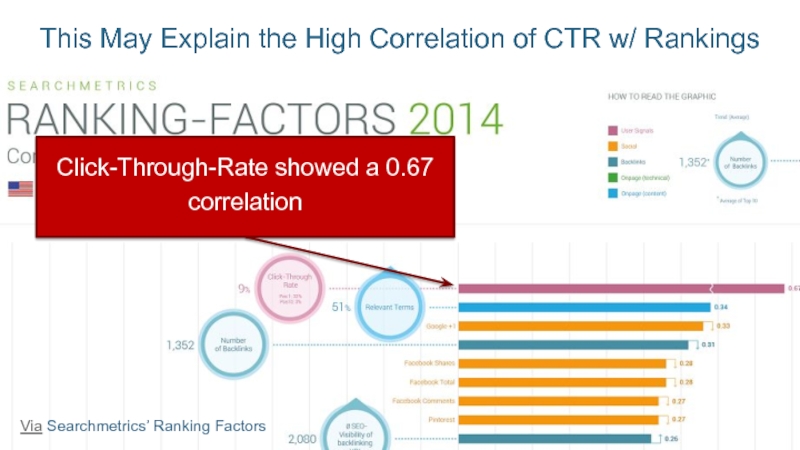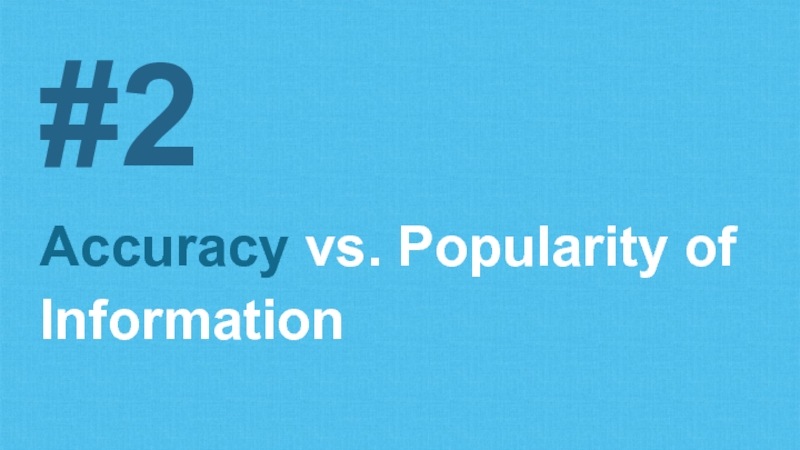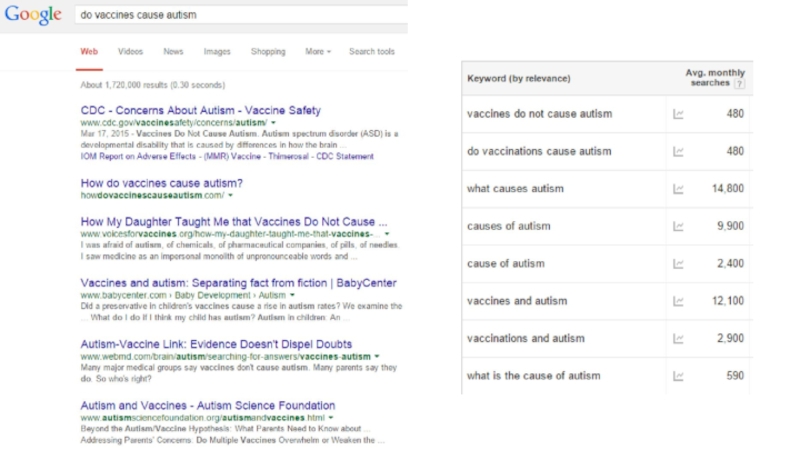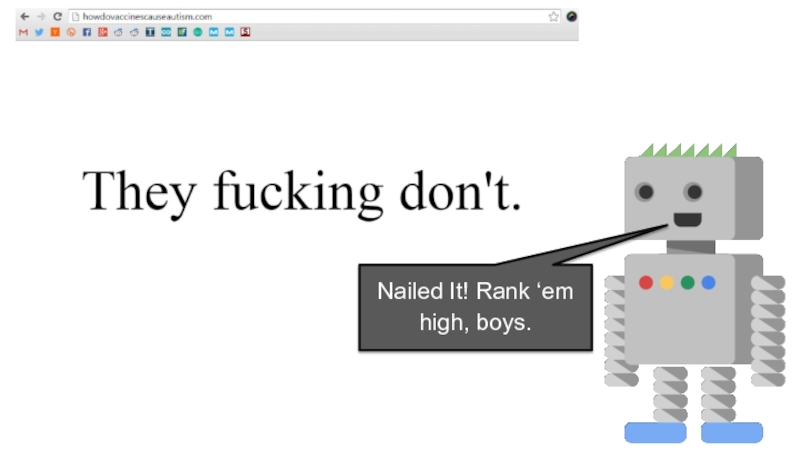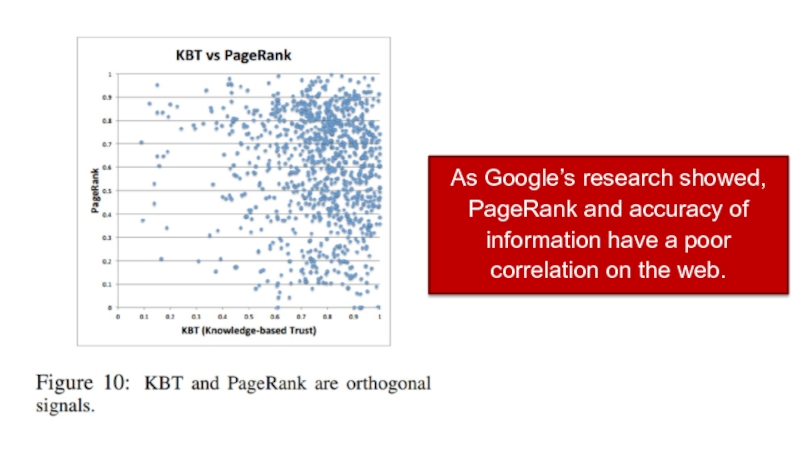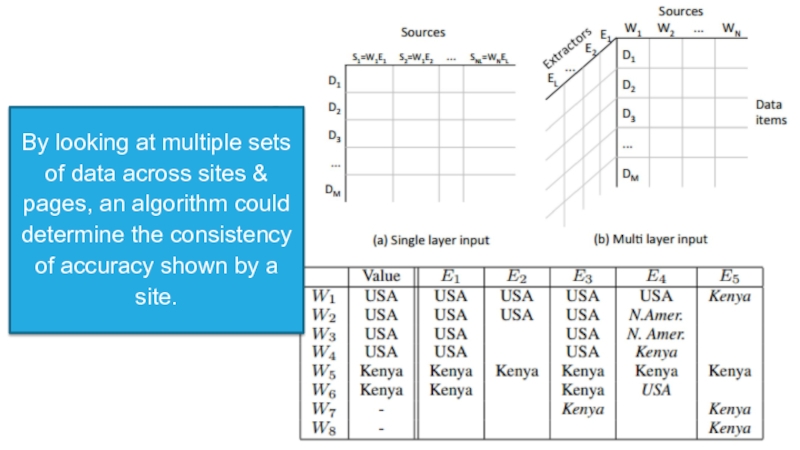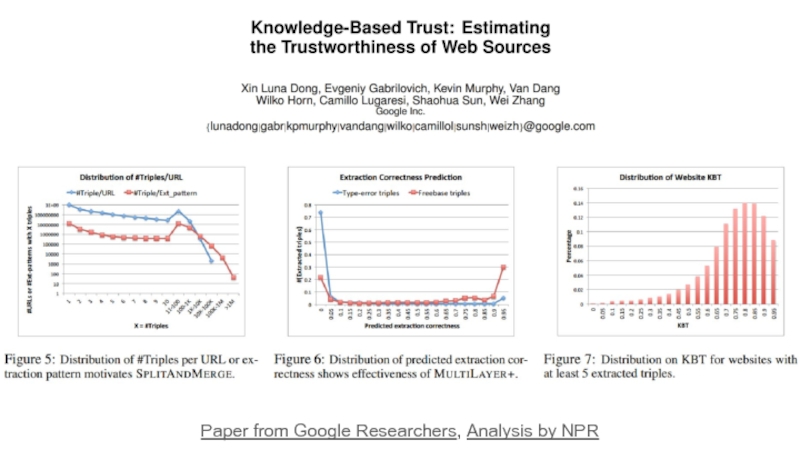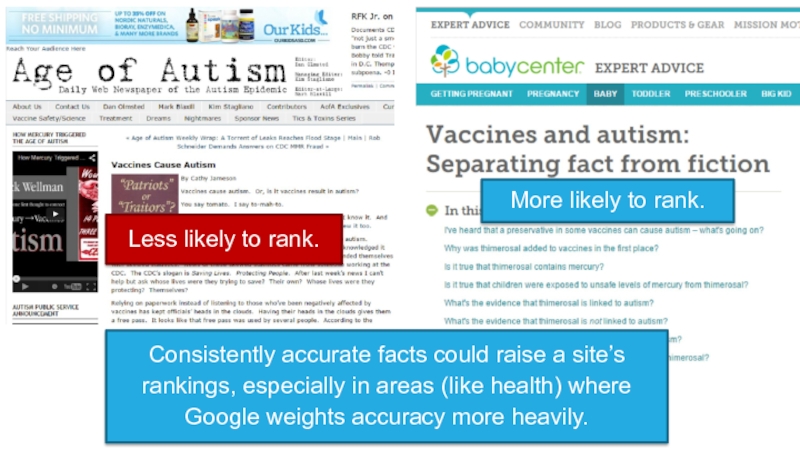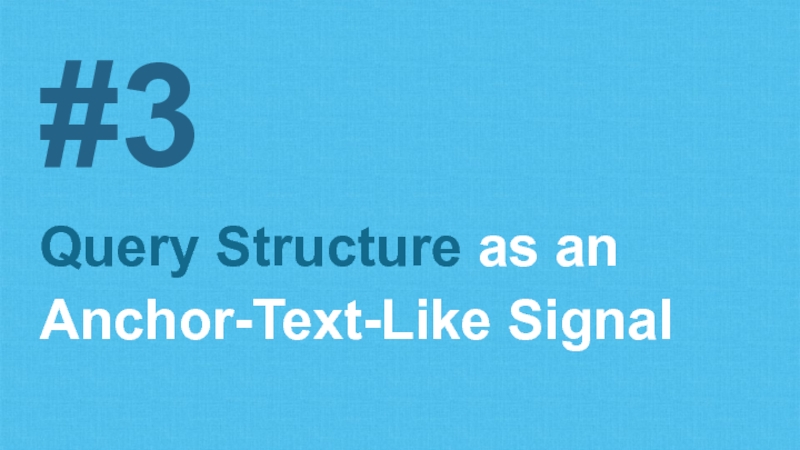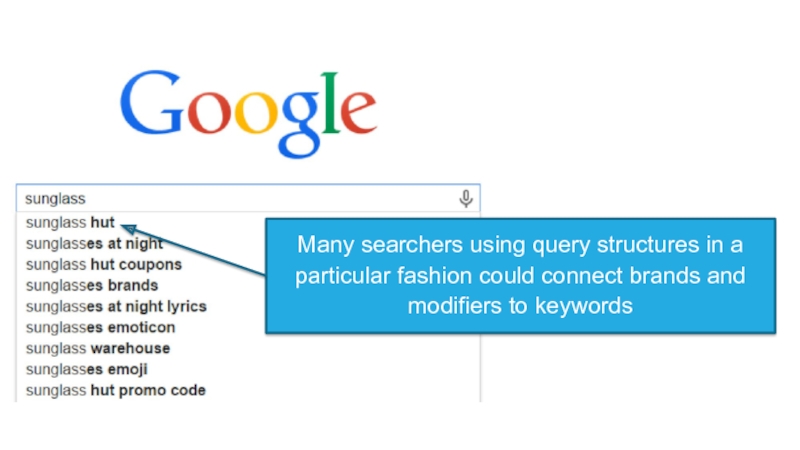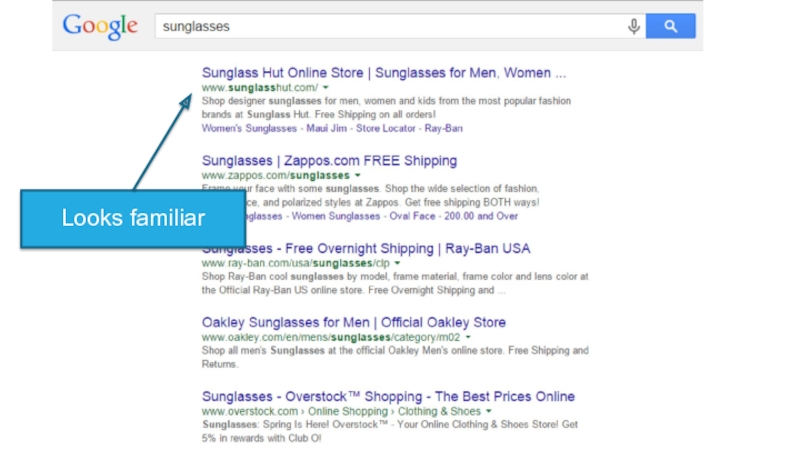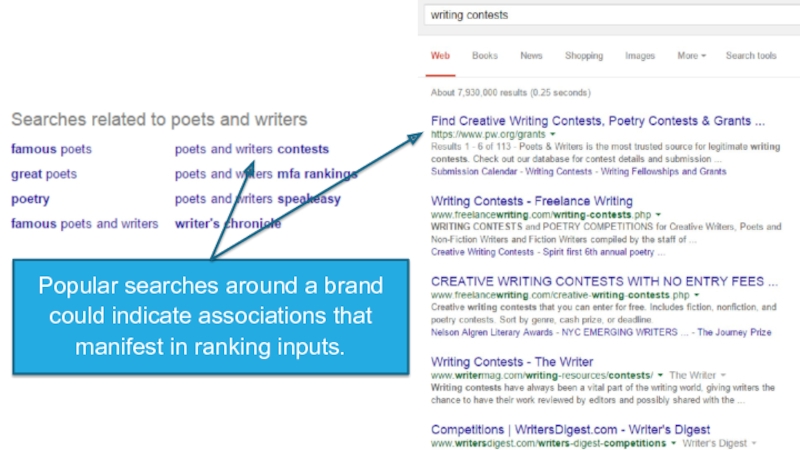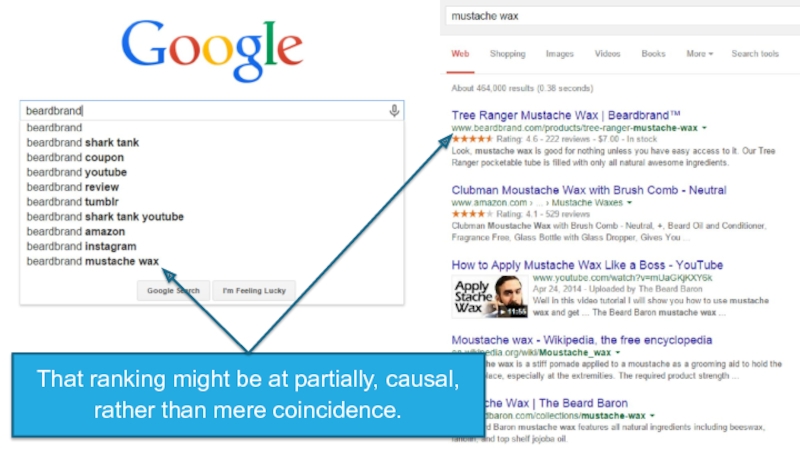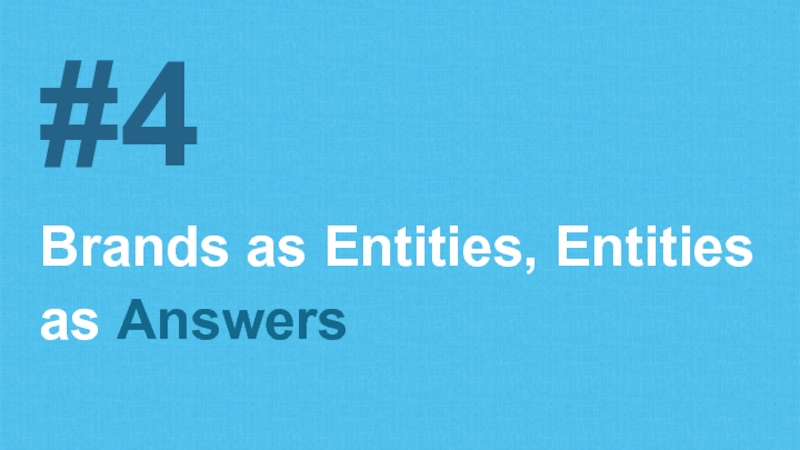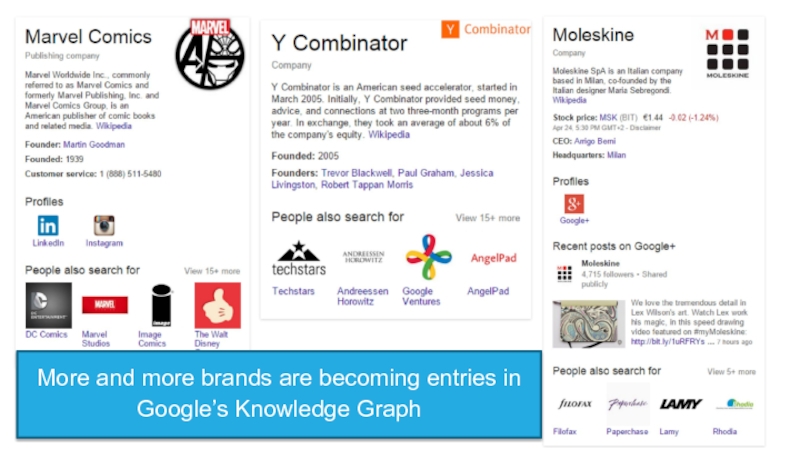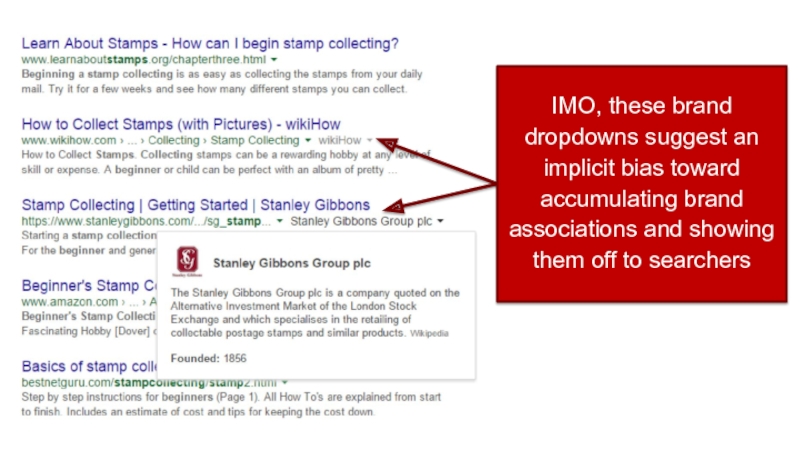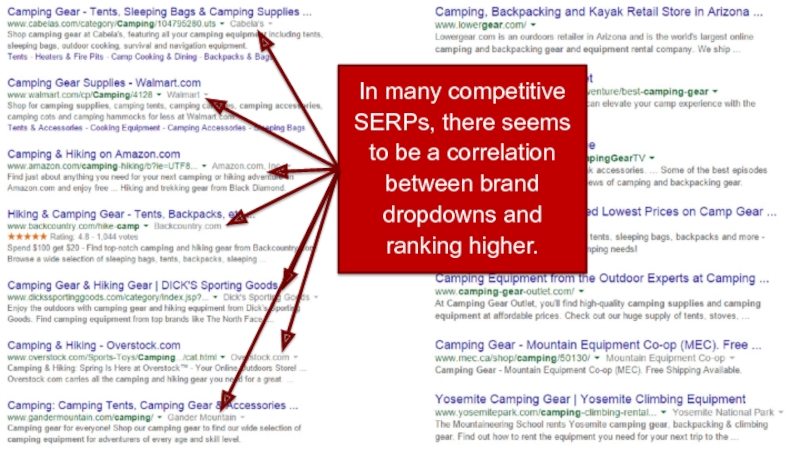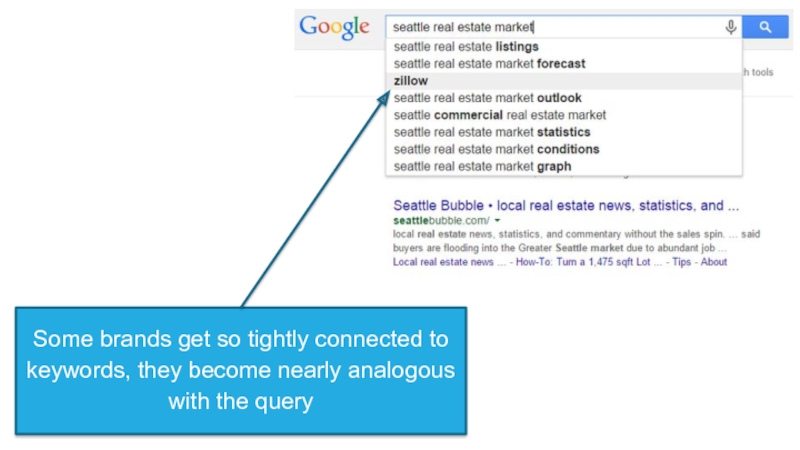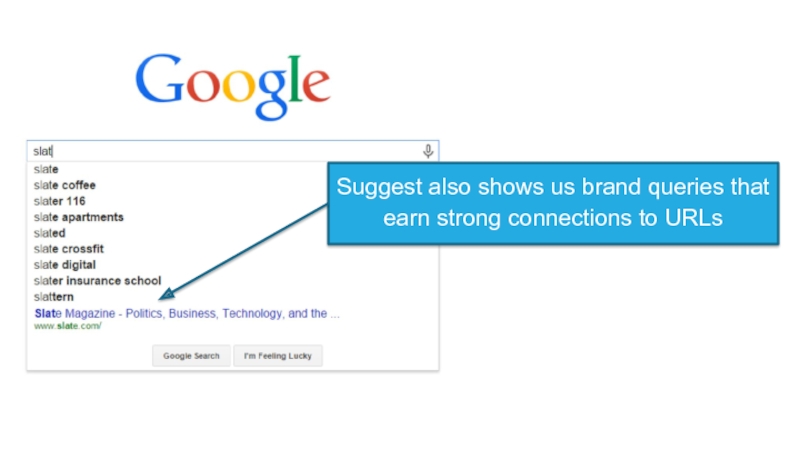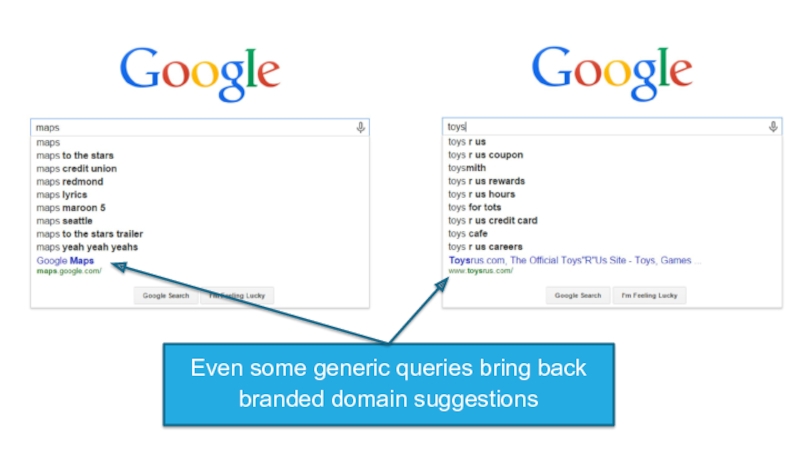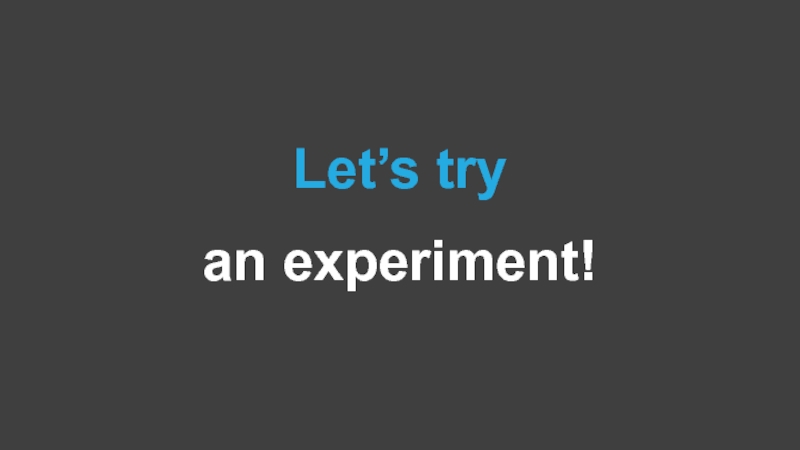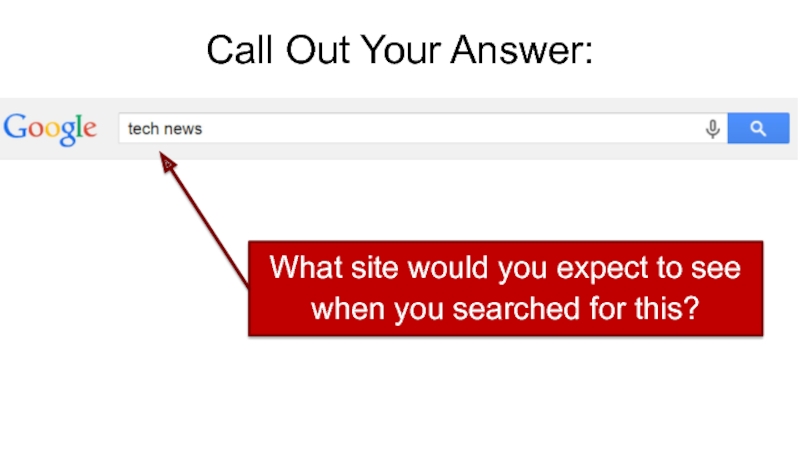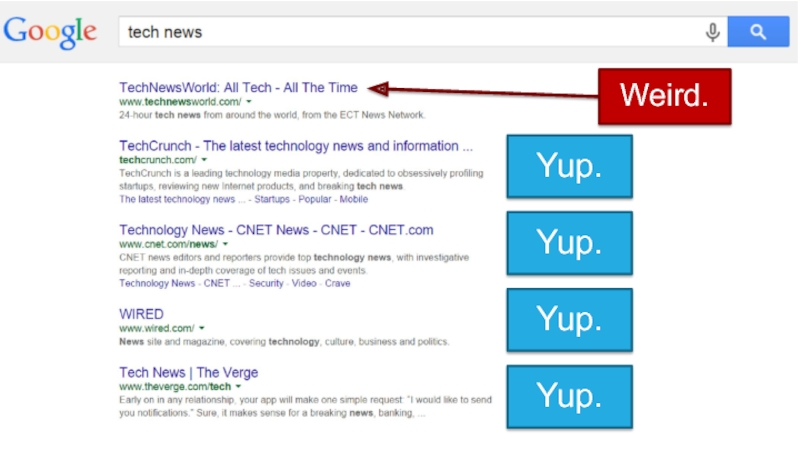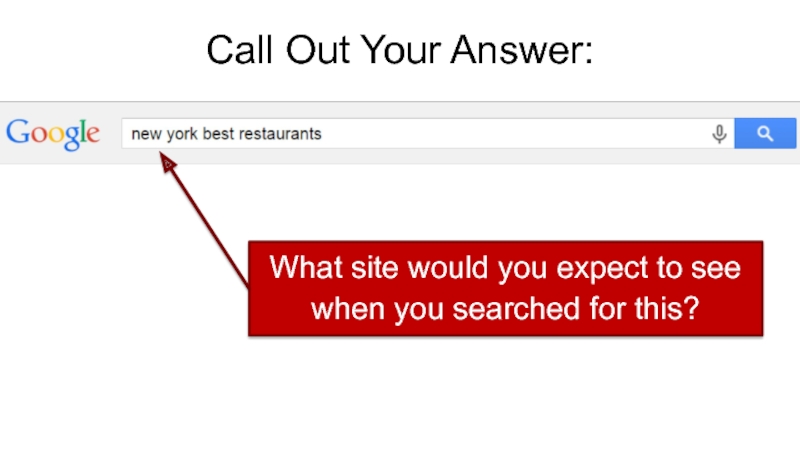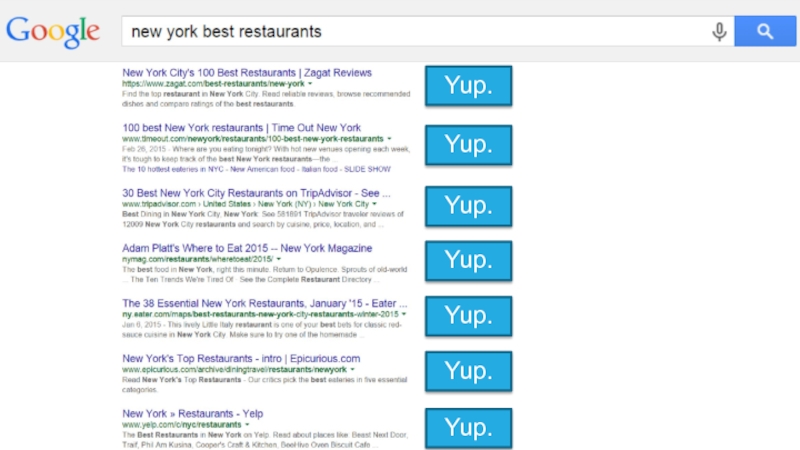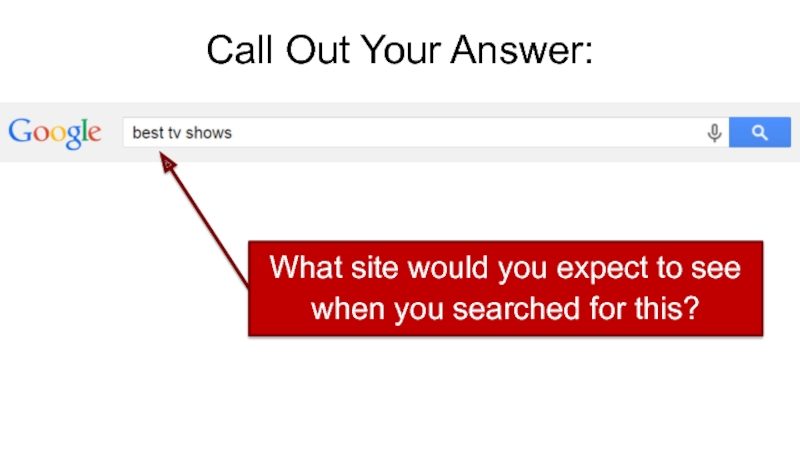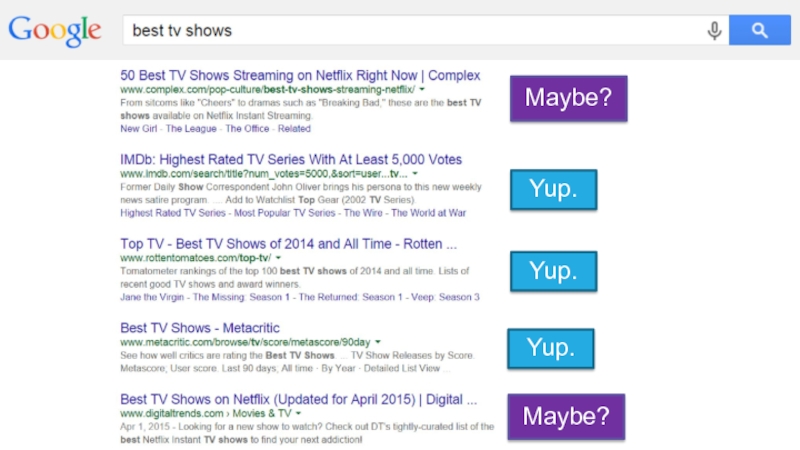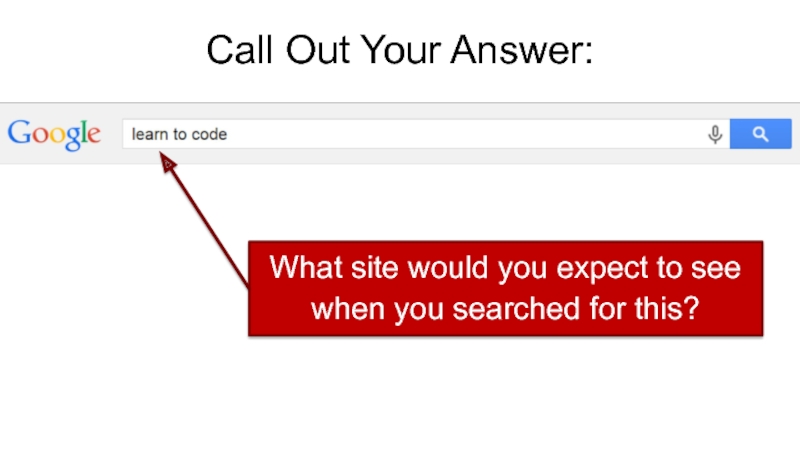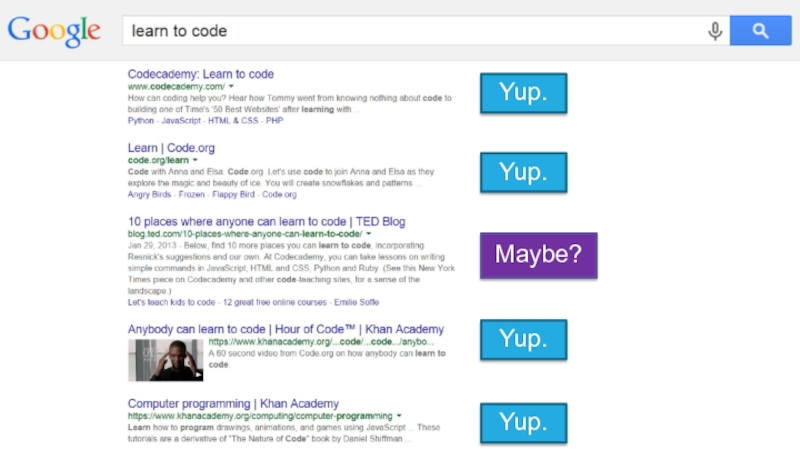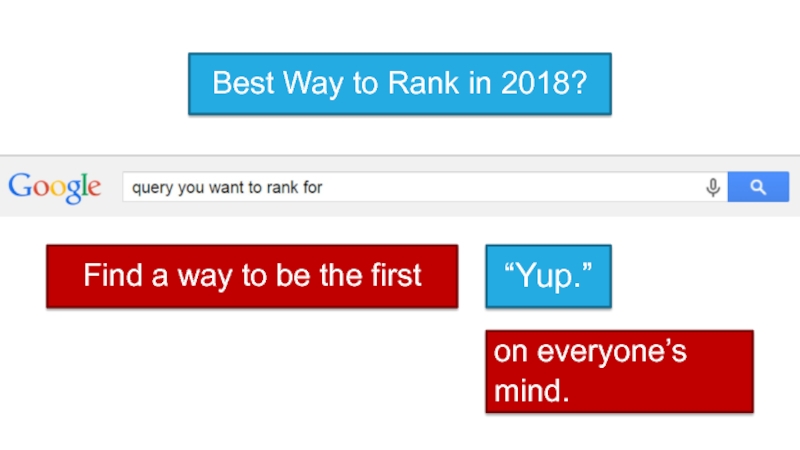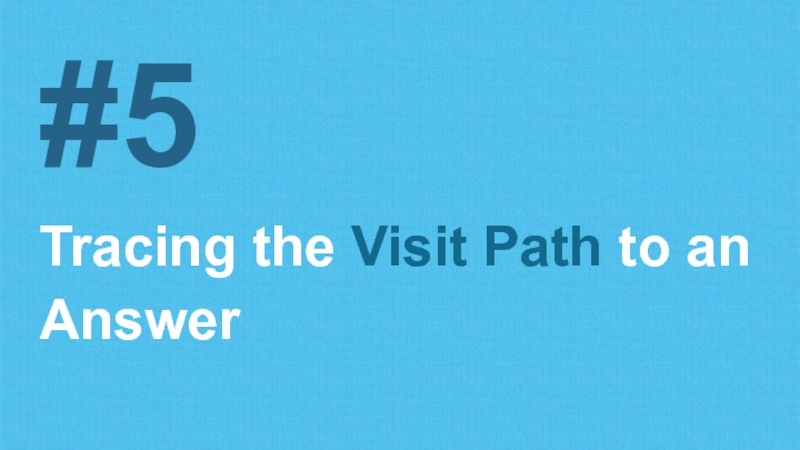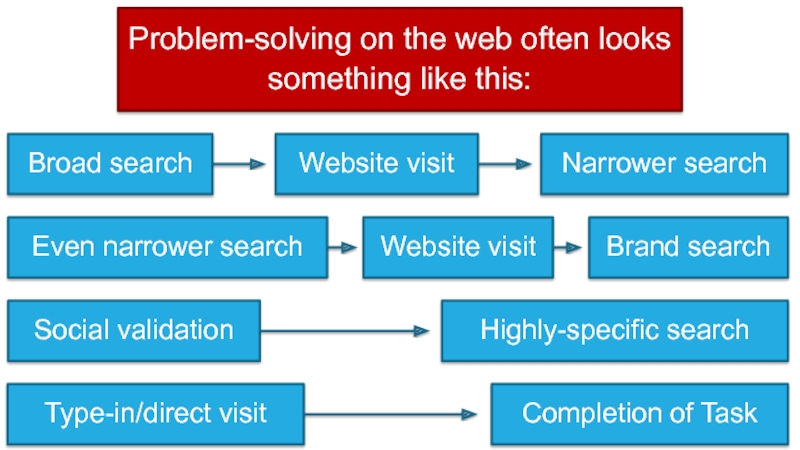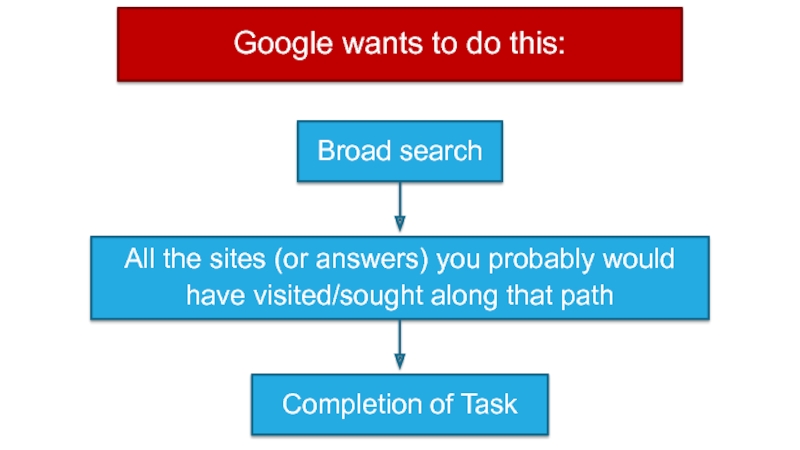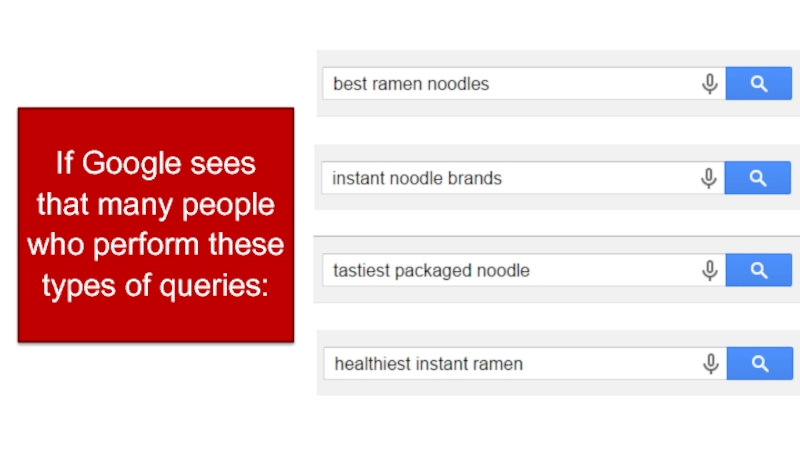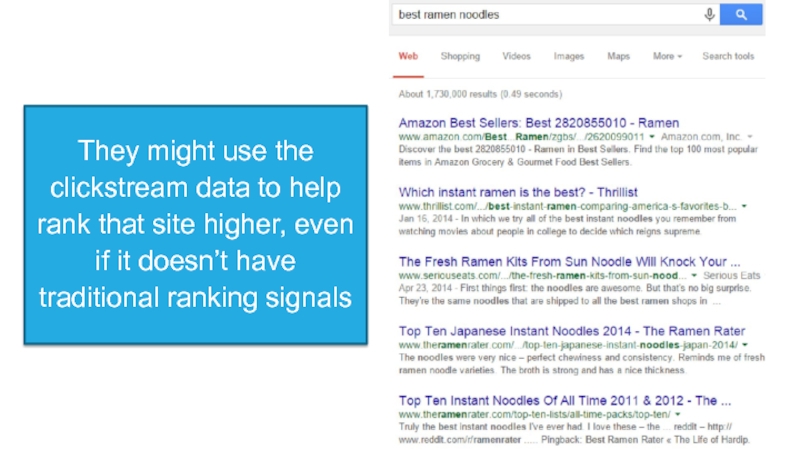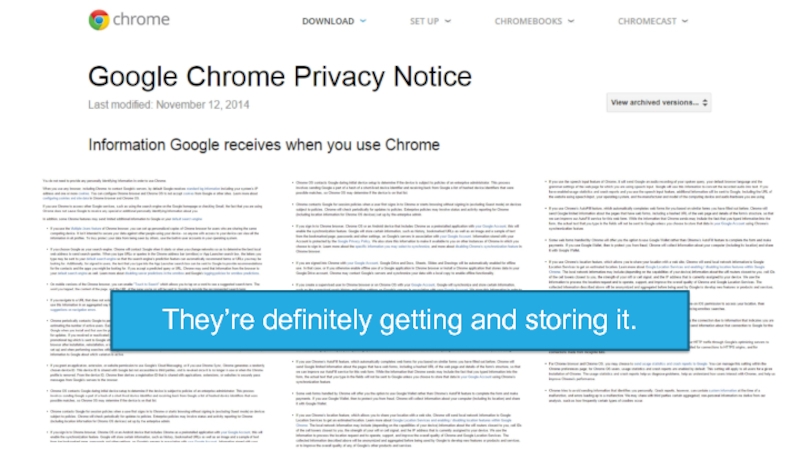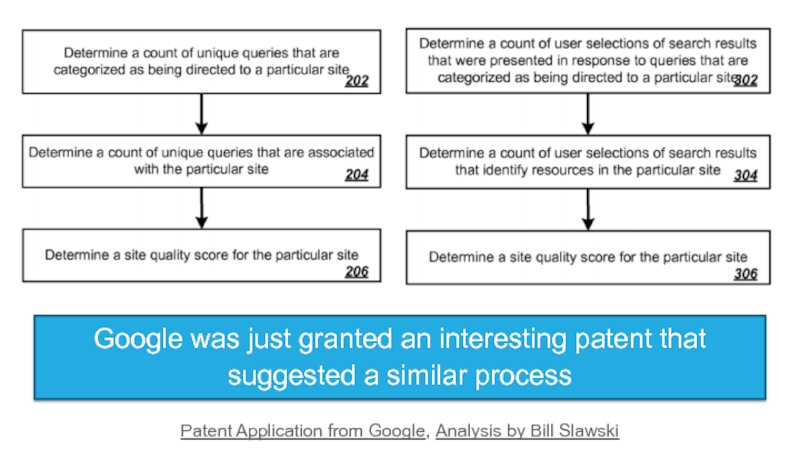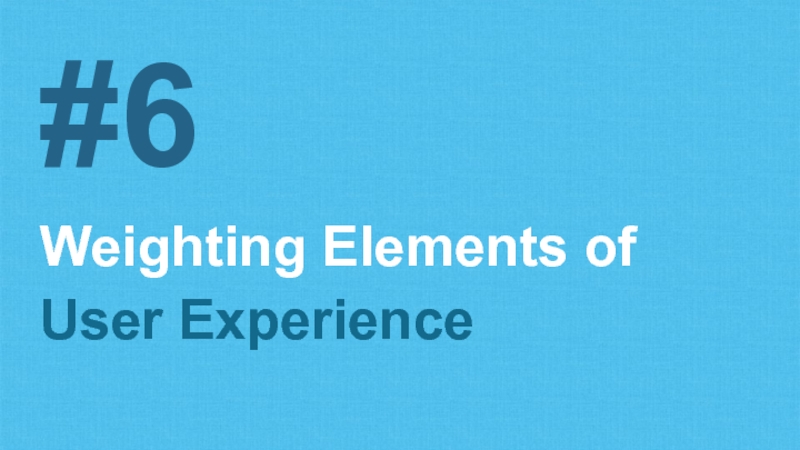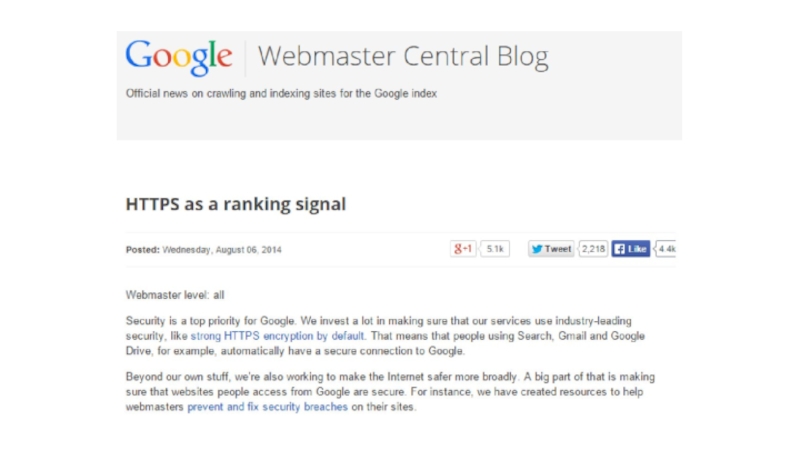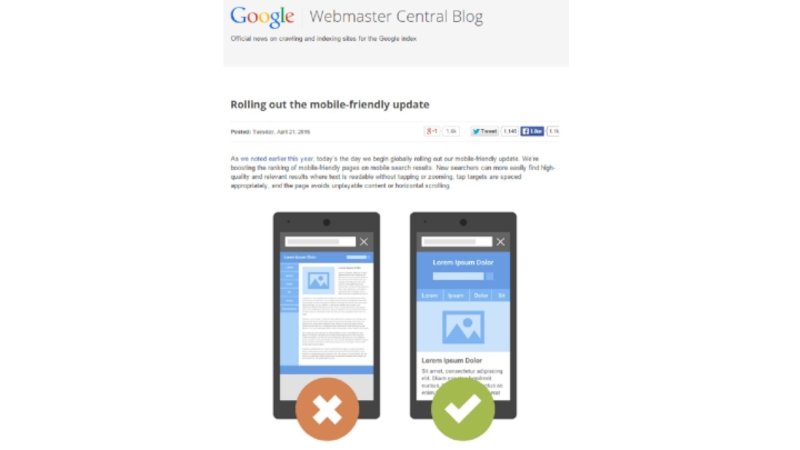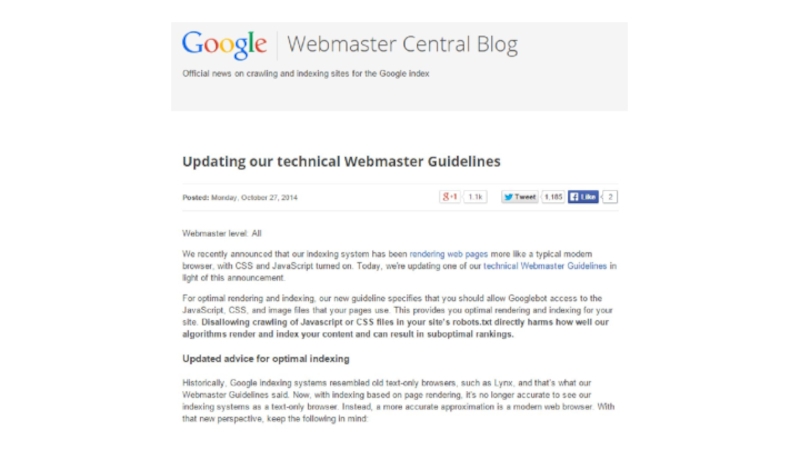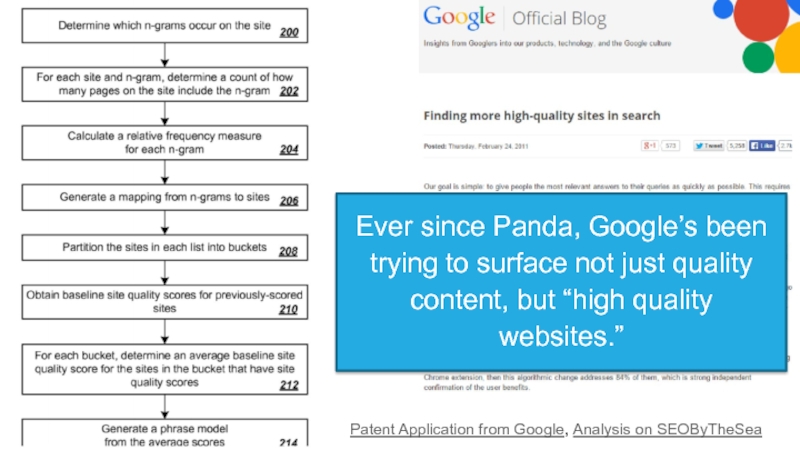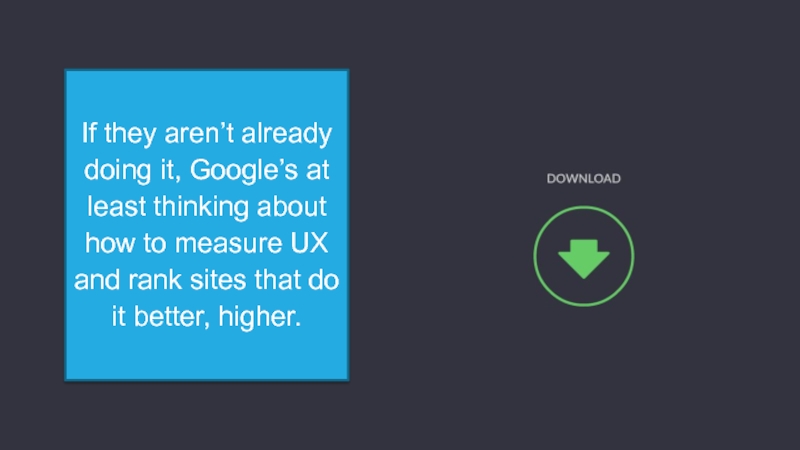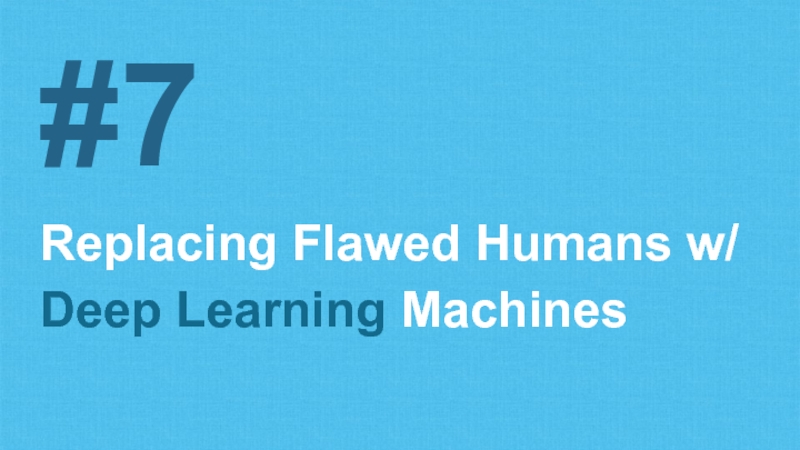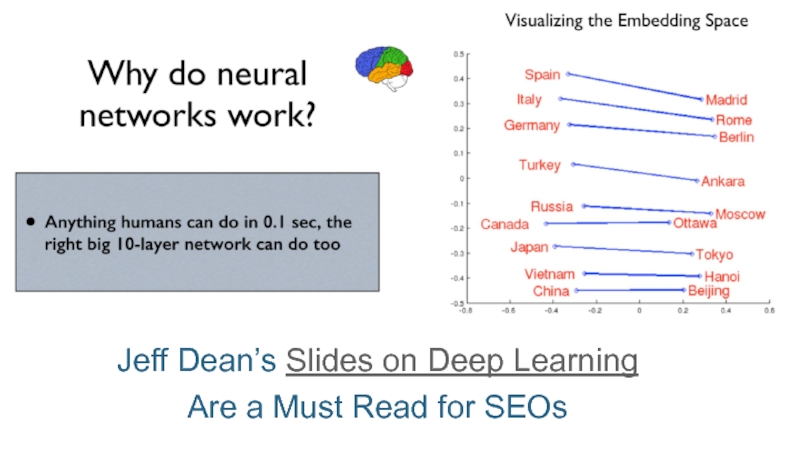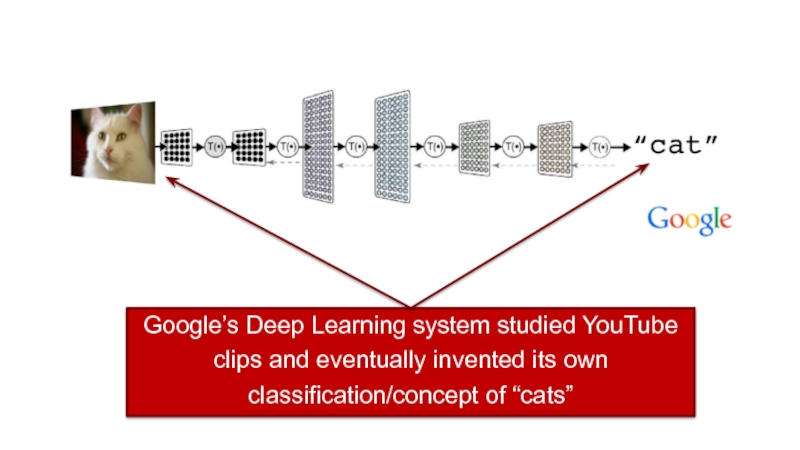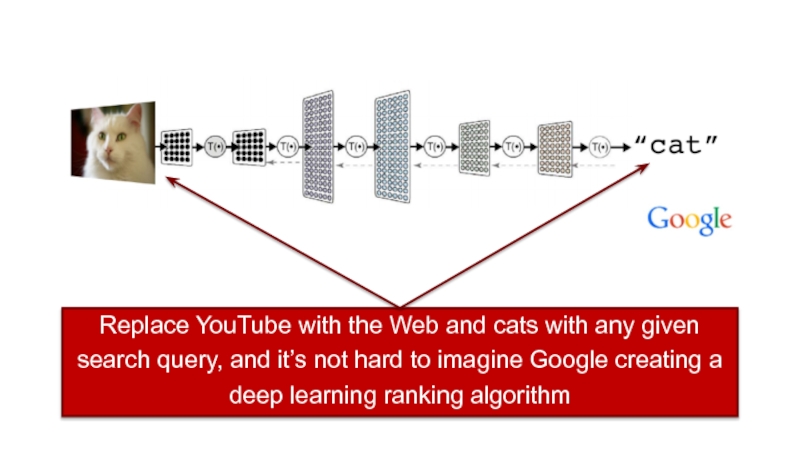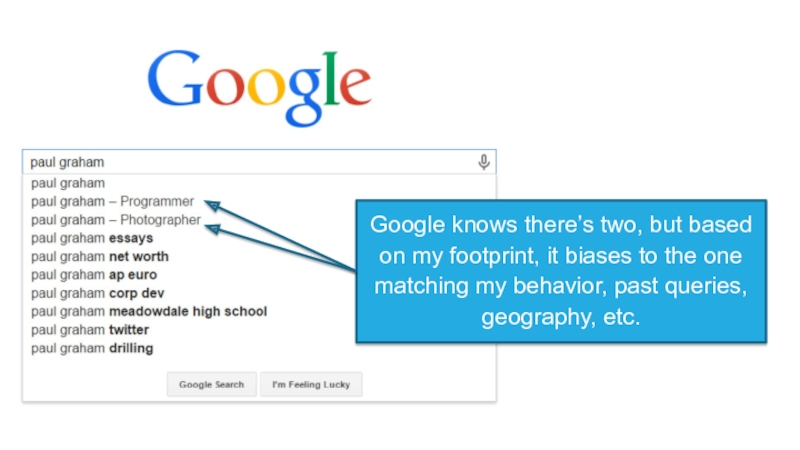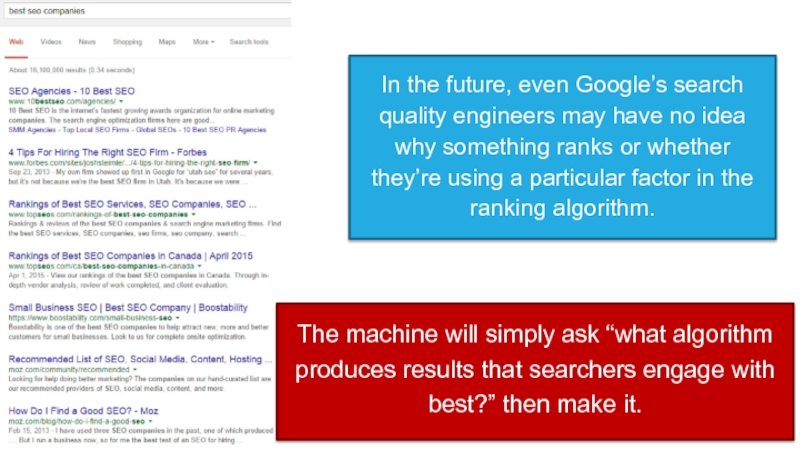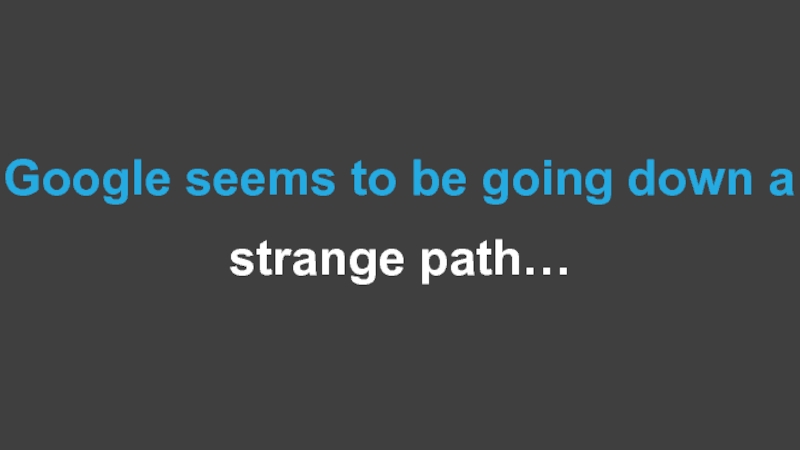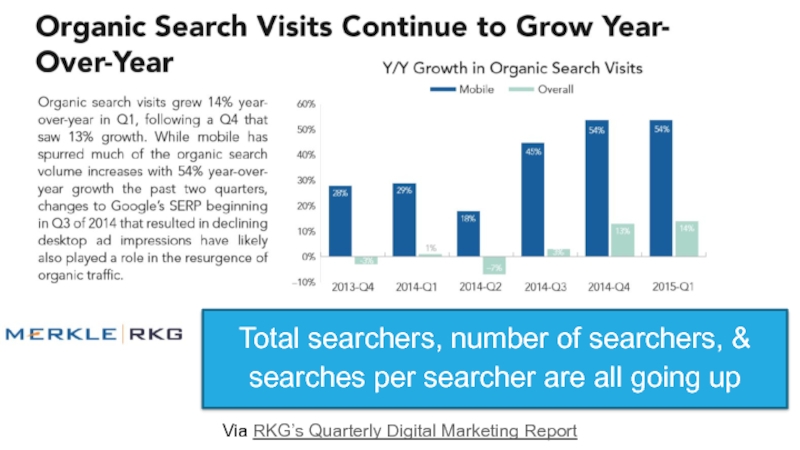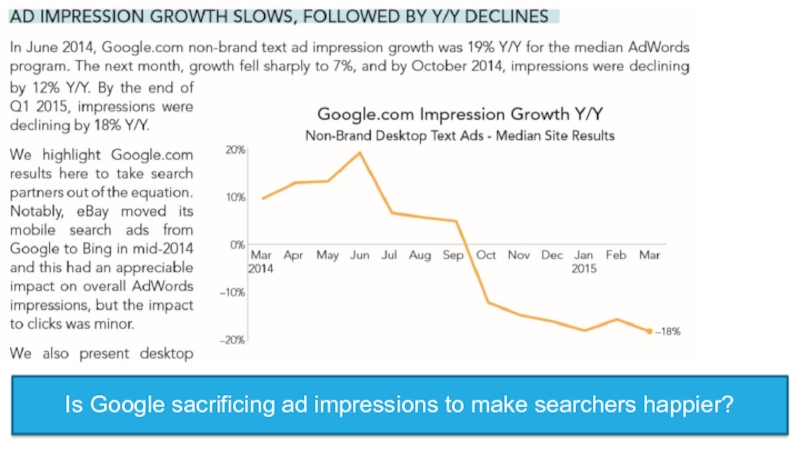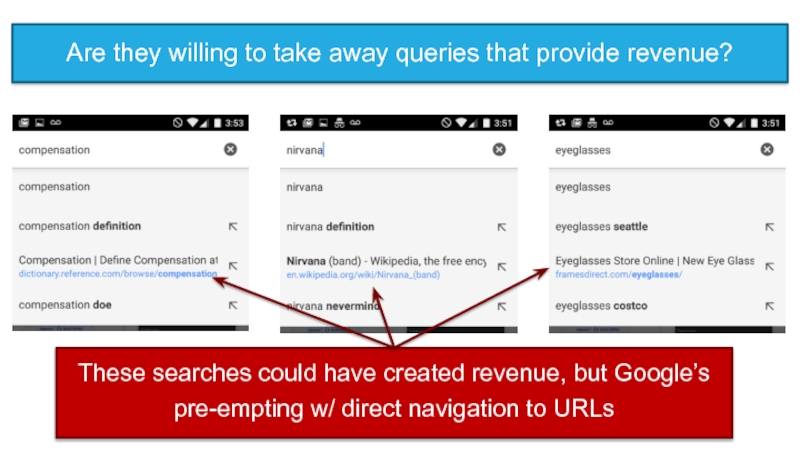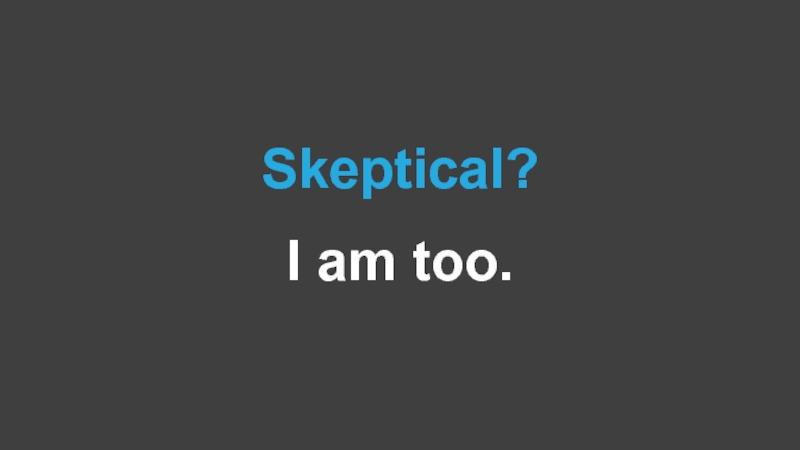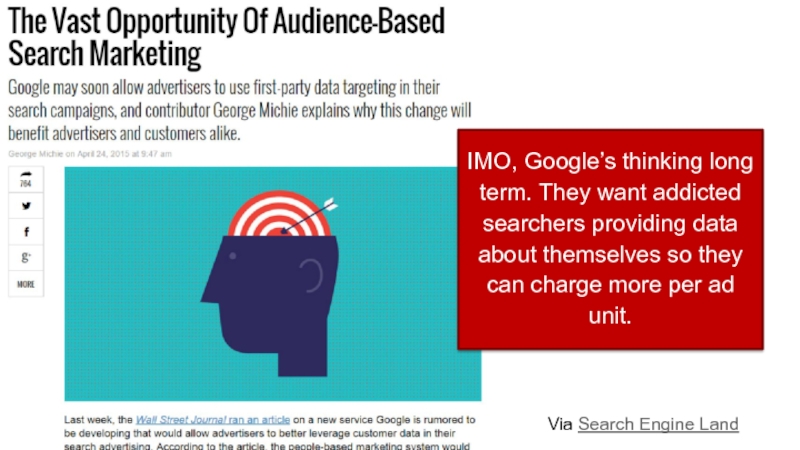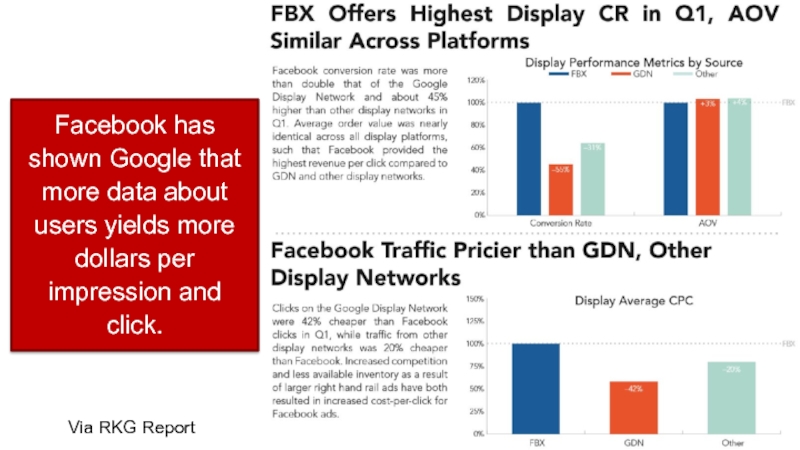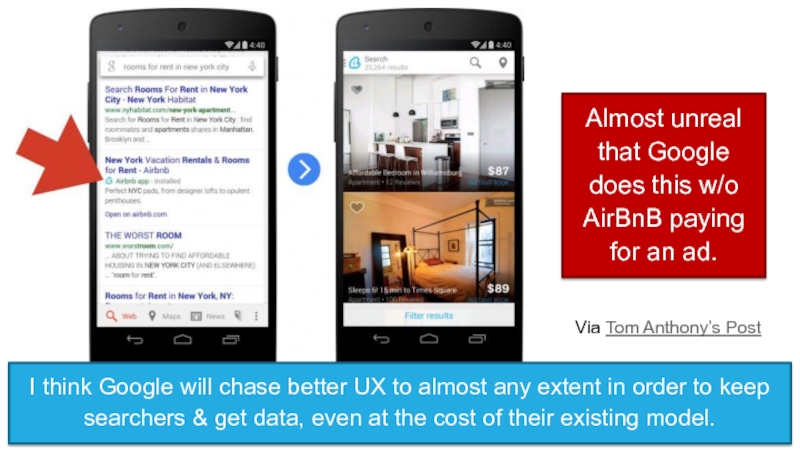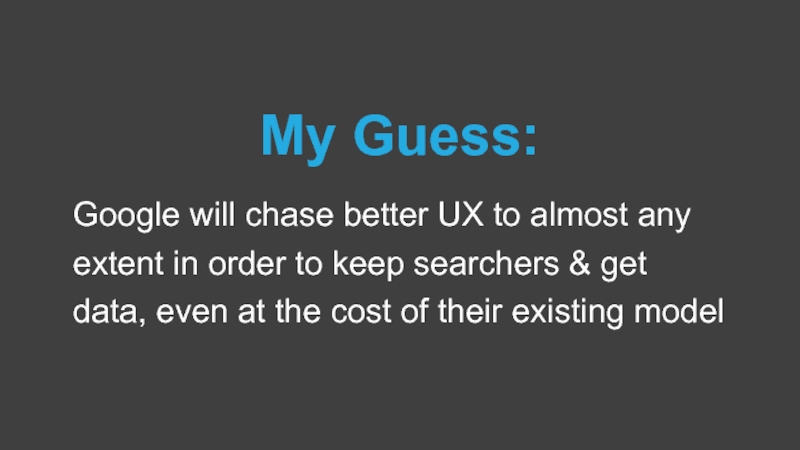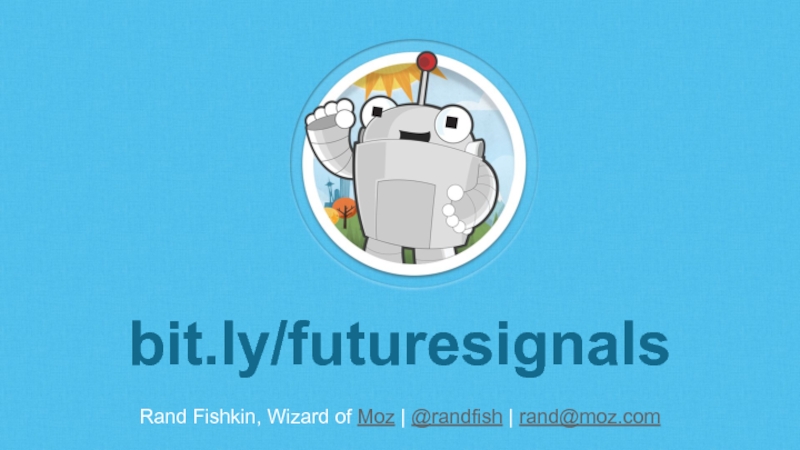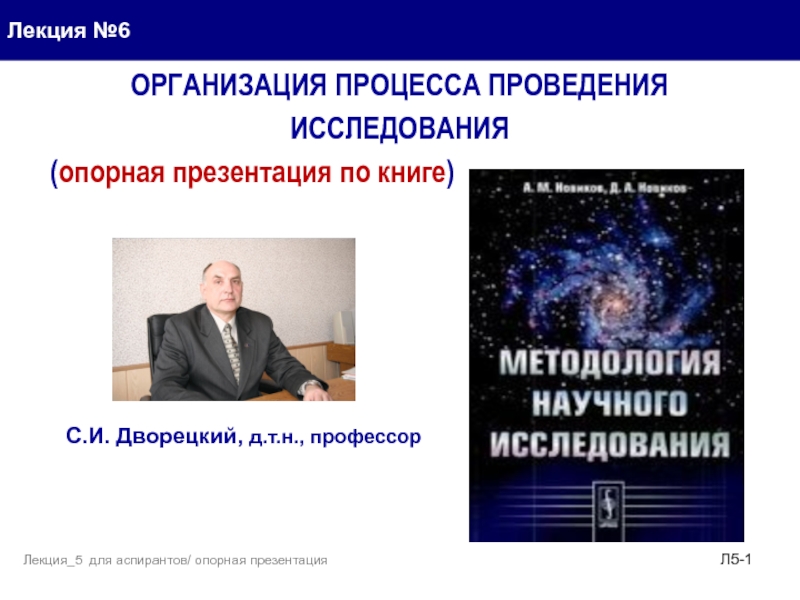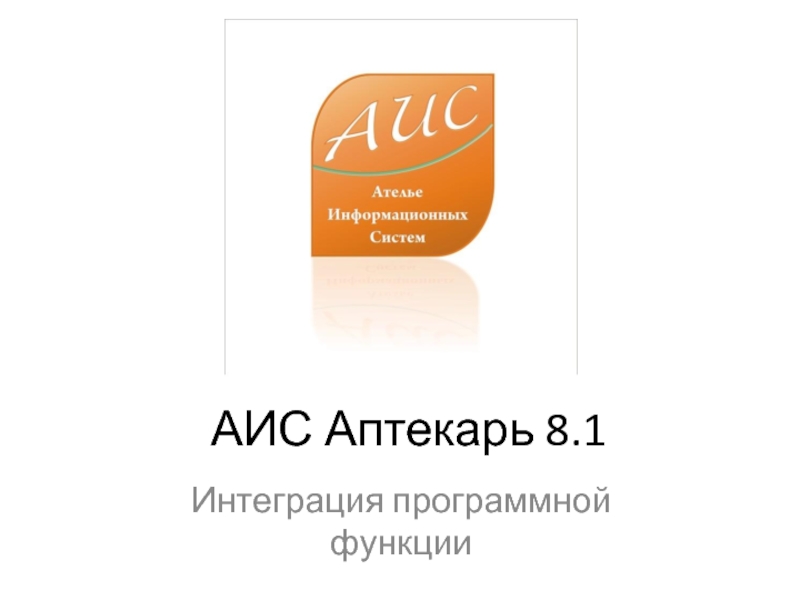- Главная
- Разное
- Дизайн
- Бизнес и предпринимательство
- Аналитика
- Образование
- Развлечения
- Красота и здоровье
- Финансы
- Государство
- Путешествия
- Спорт
- Недвижимость
- Армия
- Графика
- Культурология
- Еда и кулинария
- Лингвистика
- Английский язык
- Астрономия
- Алгебра
- Биология
- География
- Детские презентации
- Информатика
- История
- Литература
- Маркетинг
- Математика
- Медицина
- Менеджмент
- Музыка
- МХК
- Немецкий язык
- ОБЖ
- Обществознание
- Окружающий мир
- Педагогика
- Русский язык
- Технология
- Физика
- Философия
- Химия
- Шаблоны, картинки для презентаций
- Экология
- Экономика
- Юриспруденция
Ranking Signals of the Future A look at what inputs search engines may adopt in the future and how it impacts the marketing we do today. презентация
Содержание
- 1. Ranking Signals of the Future A look at what inputs search engines may adopt in the future and how it impacts the marketing we do today.
- 2. Find These Slides Online at: bit.ly/futuresignals
- 3. #1 Usage Data of Pages and Sites
- 4. 10,000 visits/day +50% growth last 6 months
- 5. Maybe I should send searchers to the page w/ the greater visitor loyalty & engagement.
- 6. Patent, Analysis on SEO by the Sea
- 7. Ha!
- 8. This type of ranking input could be
- 9. Via Searchmetrics’ Ranking Factors Click-Through-Rate
- 10. #2 Accuracy vs. Popularity of Information
- 12. Nailed It! Rank ‘em high, boys.
- 13. As Google’s research showed, PageRank and accuracy
- 14. By looking at multiple sets of data
- 15. Paper from Google Researchers, Analysis by NPR
- 16. Consistently accurate facts could raise a site’s
- 17. #3 Query Structure as an Anchor-Text-Like Signal
- 18. Many searchers using query structures in a
- 19. Looks familiar
- 20. Popular searches around a brand could indicate associations that manifest in ranking inputs.
- 21. That ranking might be at partially, causal, rather than mere coincidence.
- 22. #4 Brands as Entities, Entities as Answers
- 23. More and more brands are becoming entries in Google’s Knowledge Graph
- 24. IMO, these brand dropdowns suggest an
- 25. In many competitive SERPs, there seems to
- 26. Some brands get so tightly connected
- 27. Suggest also shows us brand queries that earn strong connections to URLs
- 28. Even some generic queries bring back branded domain suggestions
- 29. an experiment! Let’s try
- 30. Call Out Your Answer: What site
- 31. Yup. Yup. Yup. Yup. Weird.
- 32. Call Out Your Answer: What site
- 33. Yup. Yup. Yup. Yup. Yup. Yup. Yup.
- 34. Call Out Your Answer: What site
- 35. Maybe? Yup. Yup. Yup. Maybe?
- 36. Call Out Your Answer: What site
- 37. Maybe? Yup. Yup. Yup. Yup.
- 38. Best Way to Rank in 2018? “Yup.”
- 39. #5 Tracing the Visit Path to an Answer
- 40. Problem-solving on the web often looks something
- 41. Google wants to do this: Broad search
- 42. If Google sees that many people who perform these types of queries:
- 43. Eventually end their queries on the topic after visiting: The Ramen Rater
- 44. They might use the clickstream data to
- 45. They’re definitely getting and storing it.
- 46. Google was just granted an interesting patent
- 47. #6 Weighting Elements of User Experience
- 51. Patent Application from Google, Analysis on SEOByTheSea
- 52. If they aren’t already doing it,
- 53. #7 Replacing Flawed Humans w/ Deep Learning Machines
- 54. Jeff Dean’s Slides on Deep Learning Are a Must Read for SEOs
- 55. Google’s Deep Learning system studied
- 56. Replace YouTube with the Web
- 57. Google knows there’s two, but based on
- 58. In the future, even Google’s search quality
- 59. strange path… Google seems to be going down a
- 60. Total searchers, number of searchers, & searches
- 61. Is Google sacrificing ad impressions to make searchers happier?
- 62. Are they willing to take away queries
- 63. I am too. Skeptical?
- 64. IMO, Google’s thinking long term. They want
- 65. Via RKG Report Facebook has shown Google
- 66. I think Google will chase better UX
- 67. Google will chase better UX to
- 68. Rand Fishkin, Wizard of Moz | @randfish | rand@moz.com bit.ly/futuresignals
Слайд 1Rand Fishkin, Wizard of Moz | @randfish | rand@moz.com
Ranking Signals
A look at what inputs search engines may adopt in the future
and how it impacts the marketing we do today.
Слайд 410,000 visits/day
+50% growth last 6 months
3.7 pages/session
3 visits/unique user/month
6,000 visits/day
-10% growth
1.2 pages/session
1.4 visits/unique user/month
Слайд 8This type of ranking input could be behind the strong performance
Poor keyword targeting, crap relevance, few links, but the sites probably have stronger traffic/engagement than the competition.
Слайд 9
Via Searchmetrics’ Ranking Factors
Click-Through-Rate showed a 0.67 correlation
This May Explain
Слайд 13As Google’s research showed, PageRank and accuracy of information have a
Слайд 14By looking at multiple sets of data across sites & pages,
Слайд 16Consistently accurate facts could raise a site’s rankings, especially in areas
Less likely to rank.
More likely to rank.
Слайд 18Many searchers using query structures in a particular fashion could connect
Слайд 20Popular searches around a brand could indicate associations that manifest in
Слайд 24
IMO, these brand dropdowns suggest an implicit bias toward accumulating brand
Слайд 25In many competitive SERPs, there seems to be a correlation between
Слайд 26
Some brands get so tightly connected to keywords, they become nearly
Слайд 40Problem-solving on the web often looks something like this:
Broad search
Narrower search
Even
Website visit
Website visit
Brand search
Social validation
Highly-specific search
Type-in/direct visit
Completion of Task
Слайд 41Google wants to do this:
Broad search
All the sites (or answers) you
Completion of Task
Слайд 44They might use the clickstream data to help rank that site
Слайд 46Google was just granted an interesting patent that suggested a similar
Patent Application from Google, Analysis by Bill Slawski
Слайд 51Patent Application from Google, Analysis on SEOByTheSea
Ever since Panda, Google’s been
Слайд 52
If they aren’t already doing it, Google’s at least thinking about
Слайд 55
Google’s Deep Learning system studied YouTube clips and eventually invented its
Слайд 56
Replace YouTube with the Web and cats with any given search
Слайд 57Google knows there’s two, but based on my footprint, it biases
Слайд 58In the future, even Google’s search quality engineers may have no
The machine will simply ask “what algorithm produces results that searchers engage with best?” then make it.
Слайд 60Total searchers, number of searchers, & searches per searcher are all
Via RKG’s Quarterly Digital Marketing Report
Слайд 62Are they willing to take away queries that provide revenue?
These searches
Слайд 64IMO, Google’s thinking long term. They want addicted searchers providing data
Via Search Engine Land
Слайд 65Via RKG Report
Facebook has shown Google that more data about users
Слайд 66I think Google will chase better UX to almost any extent
Almost unreal that Google does this w/o AirBnB paying for an ad.
Via Tom Anthony’s Post
Слайд 67
Google will chase better UX to almost any extent in order
My Guess:
